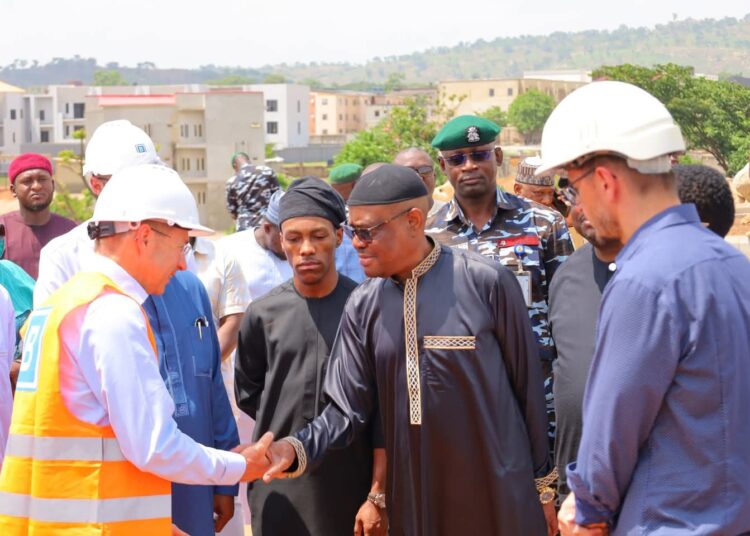Nigerian Institute of Town Planners (NITP) in the Federal Capital Territory (FCT) has called for urgent action to address the development disparities in Abuja’s satellite towns, expressing concerns over inadequate infrastructure and poor service delivery despite ongoing reforms.
The chairperson of NITP, FCT chapter, Queen Phillips, made the call yesterday in Abuja in her welcome address at the 2025 edition of the FCT Town Planners Day, with the theme, “Regional Development in the FCT: Rethinking Public Sector-led Development of Abuja Satellite Towns.”
Phillips said while the Abuja Master Plan envisioned satellite towns playing a complementary role to the Federal Capital City (FCC) the current reality shows significant gaps.
“The realities today reveal significant disparities. Many of the satellite towns still grapple with inadequate infrastructure, poor service delivery, and weak governance systems,” she said.
She acknowledged the recent reforms introduced by the Federal Capital Territory Administration (FCTA), including new policy measures to monitor growth, enforce planning standards, and reforms in land administration to curb speculation.
“There is currently an effort to review the Abuja Master Plan; this is also a significant step towards producing a forward-looking framework that integrates regional development strategies with sustainability and resilience,” Phillips said.
However, she pointed out that these efforts raise critical questions on inclusivity, governance, and long-term sustainability, which the day’s deliberations sought to interrogate.
The NITP chairman charged participants to move beyond identifying problems to proffering concrete solutions.
“This year, I urge us to go beyond diagnosing challenges and focus on developing practical, actionable solutions that can transform Abuja’s satellite towns into vibrant, resilient, and inclusive urban centres,” she urged.
The coordinator of Abuja Metropolitan Management Council (AMMC) Chief Felix Obuah, who was represented by the director of Development Control, Mukhtar Galadima, while delivering his welcome remark, echoed the call for collaborative efforts among public and private stakeholders in development.
“Government leadership is very important, but government can’t do it alone,” he cautioned, emphasising the necessity of partnerships with private investors and communities to enhance infrastructure.
Galadima highlighted successful projects already initiated, mentioning the expansion of key roads, including Karu-Jikyowi-Karishi and Ushafa-Bwari.
While comparing specialised districts in global cities like Doha and Dubai, he maintained that real progress requires innovative planning.
“We have to come up with plans that will make Bwari an educational hub, or transform Gwagwalada into a health city. We must explore public-private partnerships and other revenue sources.
“A plan remains just that until it is implemented by relevant stakeholders. Your role as planners is crucial in ensuring that the needs of the community are at the forefront of development efforts,” he said.
The event featured lead presentations from renowned scholars. Tpl. Dr. Yakubu Bununu presented the keynote paper, while Tpl. Dr. Daniel Adamu spoke on “Spatial Planning, Governance, and Sustainable Urban Growth in Abuja’s Satellite Towns.”
Tpl. Timeyin Uwejamomore, presented paper on “Redesigning Infrastructure and Service Delivery in Abuja Satellite Towns: A Pathway to Inclusive Urban Growth.”





